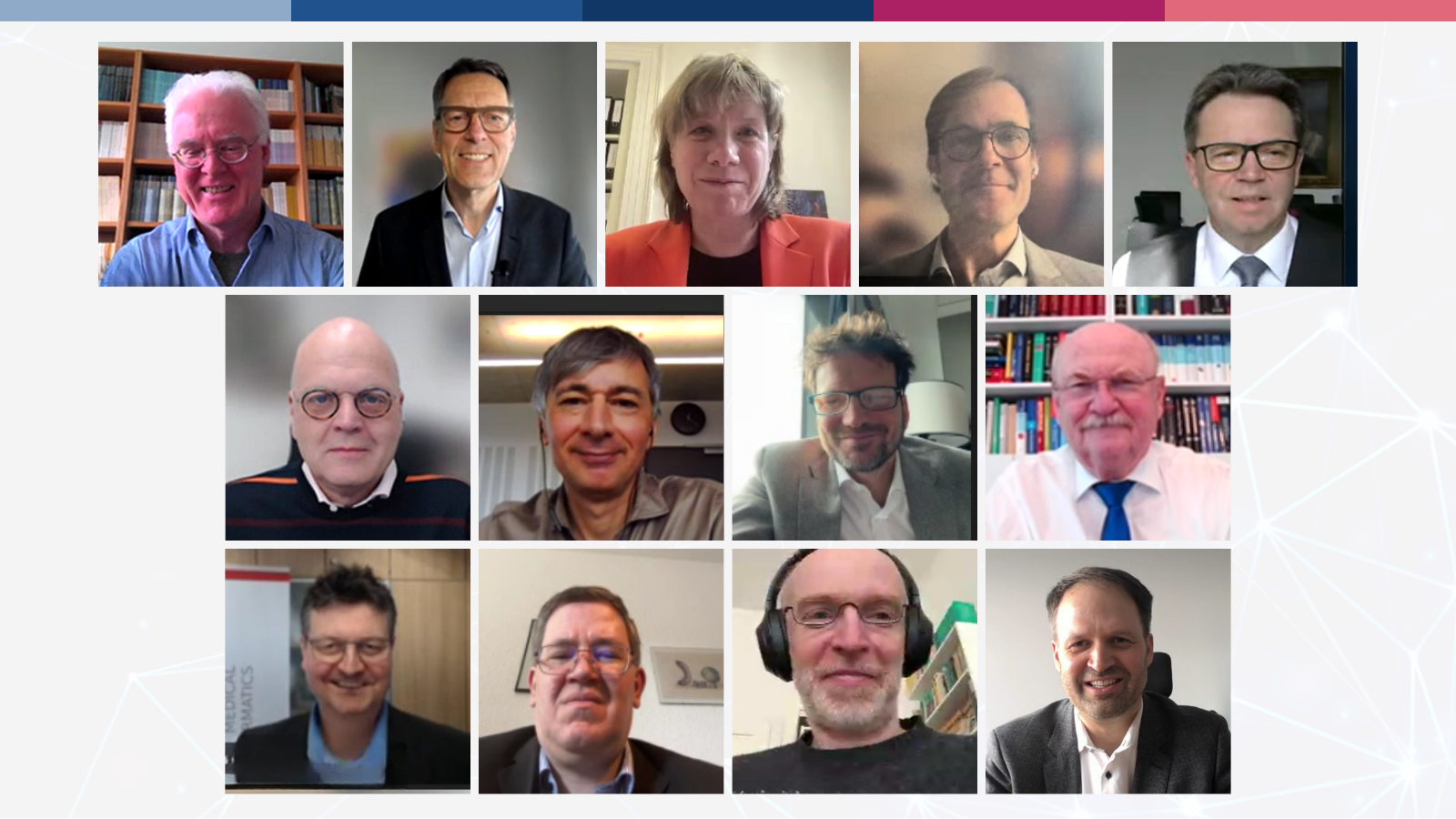New research center develops innovative methods for improved healthcare
In their first meeting on March 14, the Supervisory Board of the Lower Saxony Center for AI and Causal Methods in Medicine (CAIMed) was constituted. Dr. Georg Schütte, Secretary General of the Volkswagen Foundation, and Rüdiger Eichel, Head of the Department of Research, Innovation and Europe at the Ministry of Science and Culture of Lower Saxony, took over the chairmanship. The Supervisory Board also includes Prof. Dr. Wolfgang Brück, Spokesman of the Executive Board of the University Medical Center Göttingen, Prof. Dr. Volker Epping, President of Leibniz Universität Hannover, Prof. Dr. Metin Tolan, President of the University of Göttingen, Prof. Dr. med. Michael P. Manns, President of Hannover Medical School and Prof. Dr. Josef Penninger, Scientific Director of the Helmholtz Centre for Infection Research.
At the meeting, the newly constituted Supervisory Board appointed the CAIMed Board of Directors, consisting of Prof. Dr. Wolfgang Nejdl (Spokesperson), Prof. Dr. Michael Marschollek, Prof. Dr. Ramin Yahyapour, Prof. Dr. Niels Grabe, Prof. Dr. Michael Meyer-Hermann and Dr. Johannes Winter (Managing Director).
“The knowledge- and data-based personalization of therapy is one of the topics of the future in medicine. AI can be used to identify highly complex correlations, patterns and causalities and to combine and analyze large amounts of data in the shortest possible time. With CAIMed, we have founded an innovative research center that strengthens our competencies by networking methodical AI research, medical informatics and basic medical research. Thanks to the proven expertise of the scientists at our locations in the Hannover-Braunschweig-Göttingen metropolitan region, we will significantly improve healthcare in the future,” says Prof. Dr. Volker Epping, President of Leibniz University Hannover.
Rüdiger Eichel, Head of the Research, Innovation, Europe Department at the Lower Saxony Ministry of Science and Culture, adds: “Artificial intelligence and other digital technologies are key drivers of the shift towards increasingly personalized medicine. CAIMed can contribute to the rapid and low-threshold transfer of findings into patient care through the exemplary combination of life science and data science expertise and a variety of care-relevant medical use cases. This makes CAIMed a role model and beacon for interdisciplinary and translational networking of research made in Lower Saxony.”
Prof. Dr. Wolfgang Nejdl states: “At the Lower Saxony Research Centre for Artificial Intelligence and Causal Methods in Medicine, we develop innovative methods for improved and personalized healthcare. In doing so, we are providing solutions to urgent challenges in global healthcare. By networking and strengthening excellent Lower Saxony locations for methodical AI research, data-intensive medicine, medical informatics and basic medical research, we are creating a unique beacon for research into artificial intelligence and personalized medicine.”
Pictured from left to right: Prof. Dr. Wolfgang Nejdl, Dr. Georg Schütte, Prof. Dr. Anke Holler (standing in for Prof. Dr. Metin Tolan), Prof. Dr. Thomas Pietschmann (standing in for Prof. Dr. Josef Penninger), Prof. Dr. Volker Epping, Prof. Dr. Wolfgang Brück, Prof. Dr. Ramin Yahyapour, Prof. Dr. Niels Grabe, Prof. Dr. med. Dr. Wolfgang Brück, Prof. Dr. Ramin Yahyapour, Prof. Dr. Niels Grabe, Prof. Dr. med. Michael P. Manns, Prof. Dr. Michael Marschollek, Dr. Andreas May (standing in for Rüdiger Eichel), Prof. Dr. Michael Meyer-Hermann, Dr. Johannes Winter


